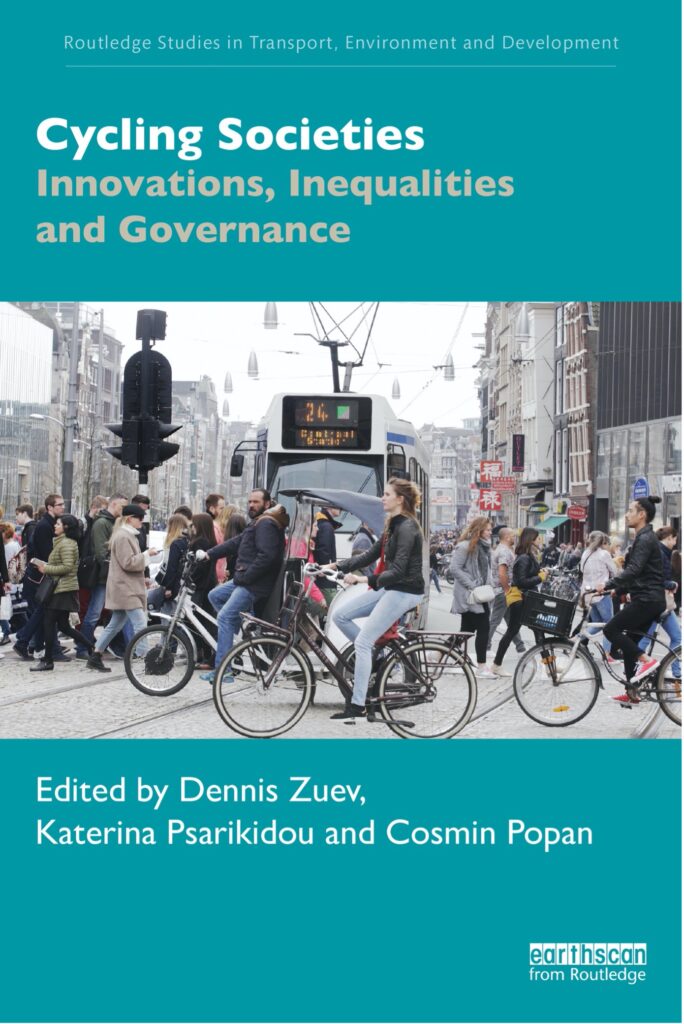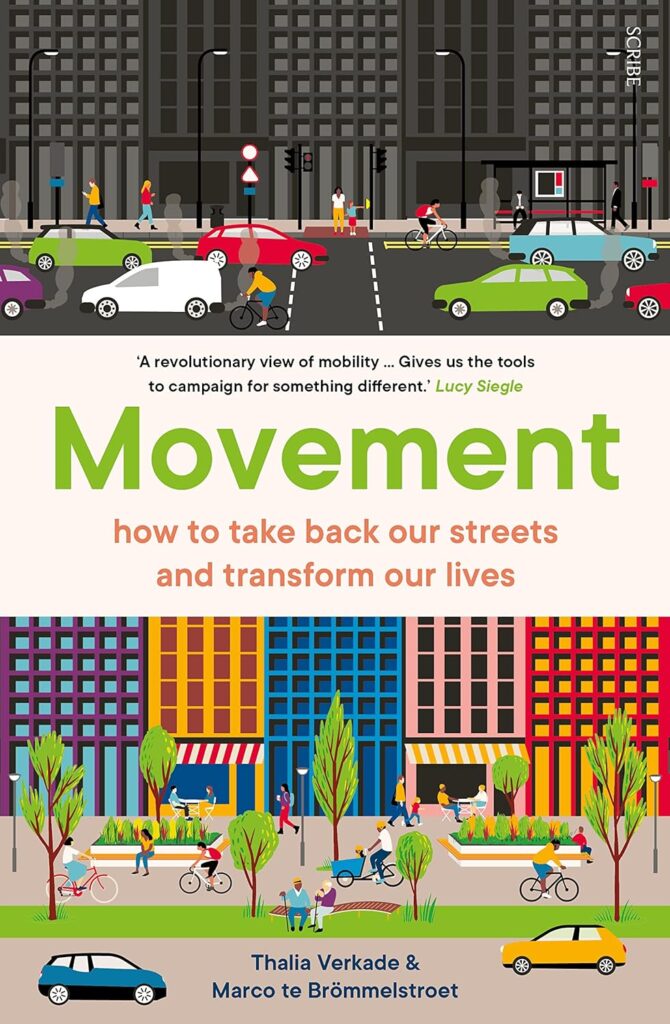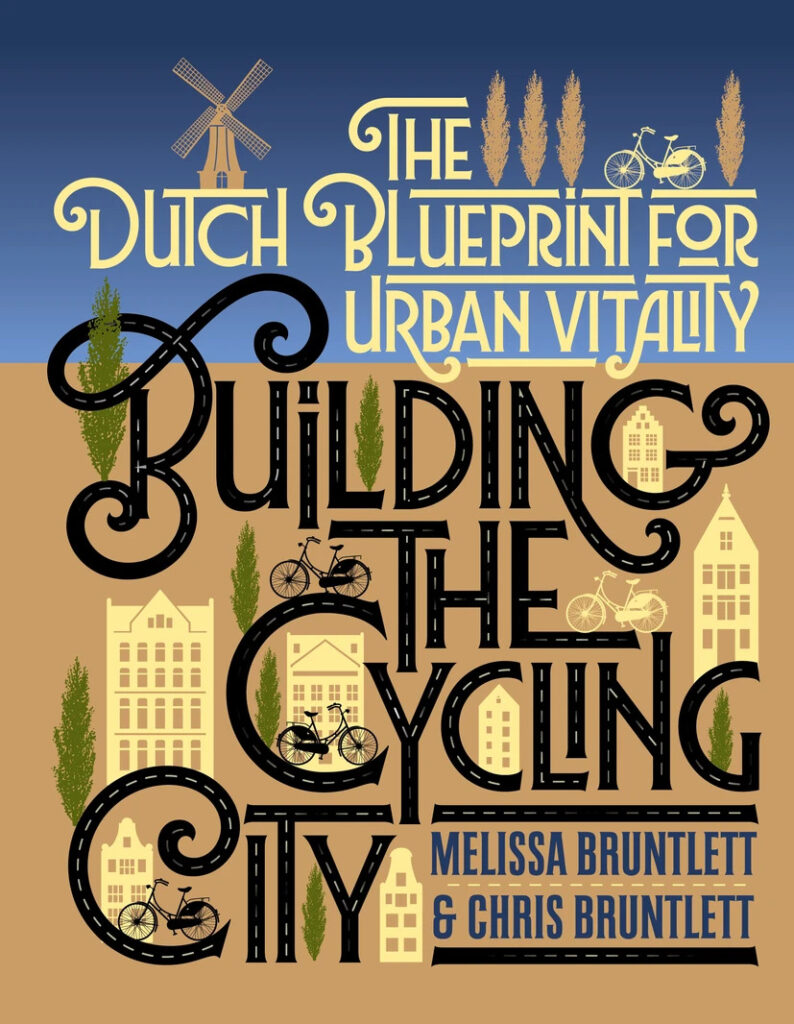
What is it about?
This edited volume bring together an interesting kaleidoscope of academic contributions around cycling and its complex relations with cities and their societies. Cycling Societies aims to answer questions about the different roles of cycling in different societies, about the effects of cycling innovations and specifically about how cycling relates to new and old inequalities. Additionally, related to the goal to “challenge dominant framings and prevalent conventions of ‘good cycling’” (p.2), the book expands the geographical span of our view on cycling beyond the (Northern-) European experiences. To further add voices, the book combines academic chapters and practice-oriented policy briefs by advocates.
“The aim of the book is to show the bicycle as a social, technological system, not antagonistic to the automobile, a constellation of practices and identities that exist in relation but not (only) in opposition to the car. The bike as a unique sociomaterial object and mode of transportation has a life an valence of its own, however, cycling mobility is often marginalised or sidelined and/or used as a policy fix, and a tool for promoting green-thinking agendas, and liveable-city branding, leading to deeper and new socio-spatial divide.”
pp. 1-2
The edited book is divided into three parts:
‘Innovations’ covers research and practices around cycling innovations: innovating policy making towards more integrated cycling policies, the contested nature and meanings of smart cycling innovations, the role of ideology in the implementation of bikesharing schemes, and challenges in e-bike dynamics in China and Denmark.
’Inequalities’ discusses how cycling dynamics can be more sensitive to the existing and emerging inequalities: how to create more sustainable cycling communities by focussing on the ‘social’ in sustainability, safe cycling and gender in Brazil, the practice of bicycle repair and maintenance from a feminine perspective in France and Australia, raising awareness of the needs of disabled cyclists, including ecology in notions of bicycle justice, and the role of the bicycle in the history of art.
In ‘Governance’ the reader is introduced to ways to understand changes in the way cycling is governed: applying a socio-technical transitions framework to understand changes in governance and contestations of cycling futures in Kolkota (India), exploring the role of carbon-consciousness as moral trigger of cyclists in Cape Town, studying food delivery workers and the way they are governed by algorithms, the limited effectiveness of plans in Brazil, and policy transfer through infrastructure design manuals in Colombia.
What approach does it take?
The book combines academic papers that draw on a wide variety of research designs and methods with insights directly from policy making contexts. Mixing voices from academia and cycling advocacy.
Who might be interested in this book?
The book provides a good platform for researchers that study mobility from a geographical point of view. Especially the contributions under ‘Inequalities’ offer interesting overviews of different aspects of an inclusive and just cycling society.
Further details
- Academic disciplines: Geography, urban planning, sociology, transition theory
- Geographical scope: Explicitly beyond the North-European context (eg. Brazil, China, South Africa, India and Colombia
- Relation to cycling: Cycling is central in this book: in further developing our understanding of the role of mobility in shaping -and being shaped by- our cities and societies
- Reference (APA): Zuev, D., Psarikidou, K. & Popan, C. (2021). Cycling Societies: Innovations, Inequalities and Governance. Routledge, New York.



